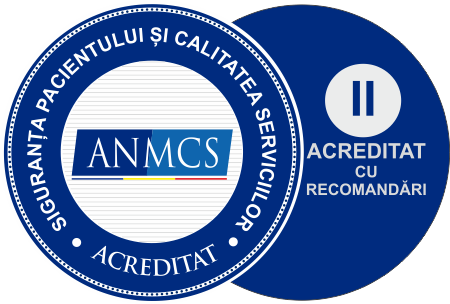What Is Allergology?
The medical specialty studying the diseases that involve allergy processes is called Clinical Allergology and Immunology.
Allergy is a normal reaction of the immune system towards certain foreign substances in the environment, which are well tolerated by non-allergic subjects.
What Is The Allergy Development Mechanism?
The role of the immune system is to protect us from infectious agents (bacteria, viruses, parasites) that can cause more or less severe infections. One of the mechanisms through which this defence is achieved is the generation of antibodies against the respective pathogen. Allergic persons develop antibodies against foreign matters (house dust mites, pollen, bee or wasp venom, animal proteins, certain foods, drugs, etc.), identified as dangerous, even though they are not. Upon the following contact with the sensitizing substance, these antibodies trigger the release of histamine and other mediators, thus determining the allergic reactions. Allergic reactions generally affect the skin, the mucous membranes, the airways, the digestive system. The severity of the symptoms varies from mild rhinitis to life-threatening anaphylaxis.
Allergology services offered by Laurus Medical clinics:
- Consultation;
- Patch test;
- Local anaesthetic tests;
- Cold urticaria ice cube test;
- Immunotherapy (Desensitization);
- Specialized drug allergy counselling;
- The education of the allergic patient of the prophylactic measures to avoid allergen exposure.
The services are available in the following Laurus Medical Network clinics:
Approached conditions:
- respiratory allergies: seasonal and persistent rhinitis, asthma, rhinosinusitis, sensitization pneumonia, bronchopneumonia, other possibly allergic respiratory diseases;
- skin allergies: urticaria, angioedema, contact dermatitis, eczema;
- anaphylactic reactions;
- food and drug allergies with various clinical forms;
- autoimmune and auto-inflammatory diseases: collagenosis, vasculitis, other systemic diseases;
- parasitosis or other infectious diseases with allergic manifestations;
- hematologic abnormalities with possible allergic causes (e.g., eosinophilia);
- all forms of allergies occurring in patients with a complex associated pathology;
- internal medicine pathology diseases with possible allergic causes and mechanisms (e.g., digestive disorders);
- immunologic deficiencies, hereditary angioedema, other rare immunologic disorders;
- allergic reactions to hymenoptera venom (bees, wasps).






